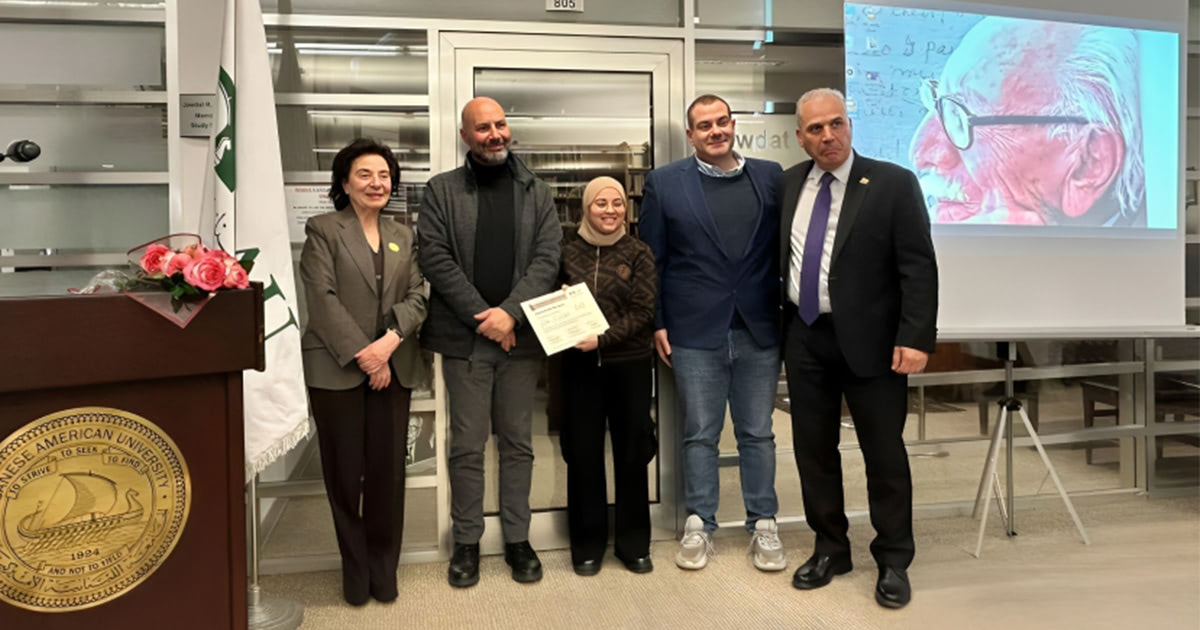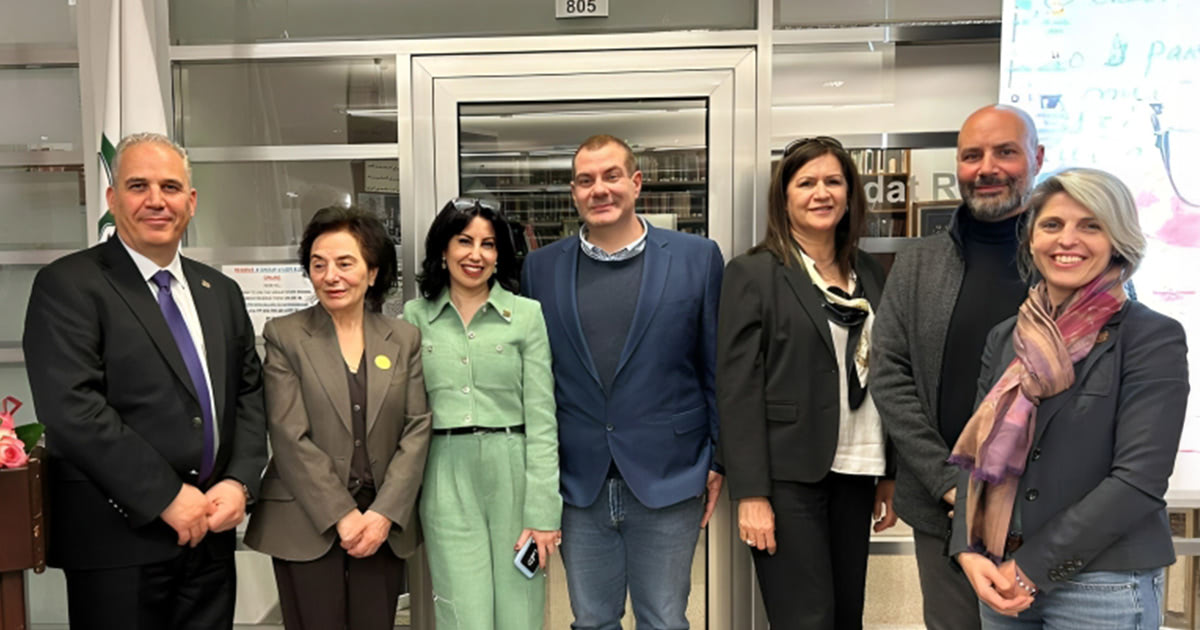Remembering Jawdat R. Haydar’s Legacy of Literary Resilience
LAU’s Department of Communication, Arts and Languages annually hosts a memorial ceremony in honor of the late poet Jawdat R. Haydar.
Every year, the Department of Communication, Arts, and Languages at LAU commemorates the enduring impact of poet Jawdat R. Haydar, a literary luminary whose words continue to echo through time, inspiring generations to explore the complexities of human experience and find solace and strength in the act of creative expression.
Held on March 5, 2024, outside the Jawdat Haydar Memorial Study Room at the Riyad Nassar Library on the Beirut Campus—which was generously donated in 2011 by Haydar’s daughter, Shahina Haydar Osseiran—the ceremony hosted Ms. Osseiran, Haydar’s grandchildren and great-grandchildren, along with Interim Dean of the School of Arts and Sciences Haidar Harmanani, faculty, staff and English and Translation LAU students.
“Haydar’s life spanned an era of significant social and political changes, and his poetry beautifully captured the essence of his experiences,” said department Chair and Associate Professor Dany Badran in his opening speech. “His work clearly reflects this transnational perspective which transcends boundaries and challenges simplistic distinctions between East and West.”
Haydar, born in Baalbeck in 1905, faced early challenges after his family’s exile under the Ottoman Empire, which led to his mother’s tragic death from typhus when he was just nine years old.
This loss propelled him on a solitary journey to Turkey to reunite with his surviving family. His subsequent travels took him to France and eventually to the US, where, as a student at North Texas University at the age of 16, he penned his first poem.
In light of his experiences, the ceremony began with an overview of the Jawdat Haydar Trauma Writing Workshop, inaugurated by Assistant Professor Sleiman El Hajj, whose work focuses on life writing. This workshop, conceptualized and led by Dr. El Hajj, aimed to channel Haydar’s humanistic values—particularly his staunch anti-war and anti-violence stance—into a creative space where participants could explore and articulate their own lived experiences of trauma through writing.
“This year’s commemoration of the late poet was an occasion to develop a writing workshop inspired by the humanistic values Haydar promulgated in his poetry,” said Dr. El Hajj. “By seeking to shape lived traumas into a tangible scar and then translating these scars into writing, as Haydar did, we see how therapeutic his work approach tends to be in dealing with hardships.”
The ceremony featured a series of readings reflecting the influence of Haydar’s poetry on the workshop participants. Third-year English students Ella Waked and Alida El Rahbani Harb, as well as senior Psychology student Jacqueline Hajj chose to recite a selection of poems that “offer a glimpse into the transformative power of creative expression in processing and articulating deeply personal experiences,” said Dr. El Hajj.
These poems were Dialogue, published in 1930, The World Is but What We Hear See and Feel, in 1999, and A Shadow of Light, in 2012.
Two LAU students, Heba El Hallak and Wajd El Khatib, a senior and junior majoring in English, also shared excerpts from their own trauma narratives created during the workshop, in which they explored the themes of medical misdiagnosis and the lasting impact of war in Palestine.
The winner of the workshop, El Hallak, was announced by Shahina Haydar Osseiran. El Hallak‘s trauma narrative, said Dr. El Hajj, not only captured the focus of the workshop on healing and self-discovery but also underscored its larger goal.
“The workshop was not led in the spirit of competition but rather with the view of healing, self-growth, and self-development that Haydar’s poetry advocates for,” added Dr. El Hajj.
Through this annual event, Haydar’s spirit lives on to inspire student writers to navigate and transcend life’s traumas through poetry.

